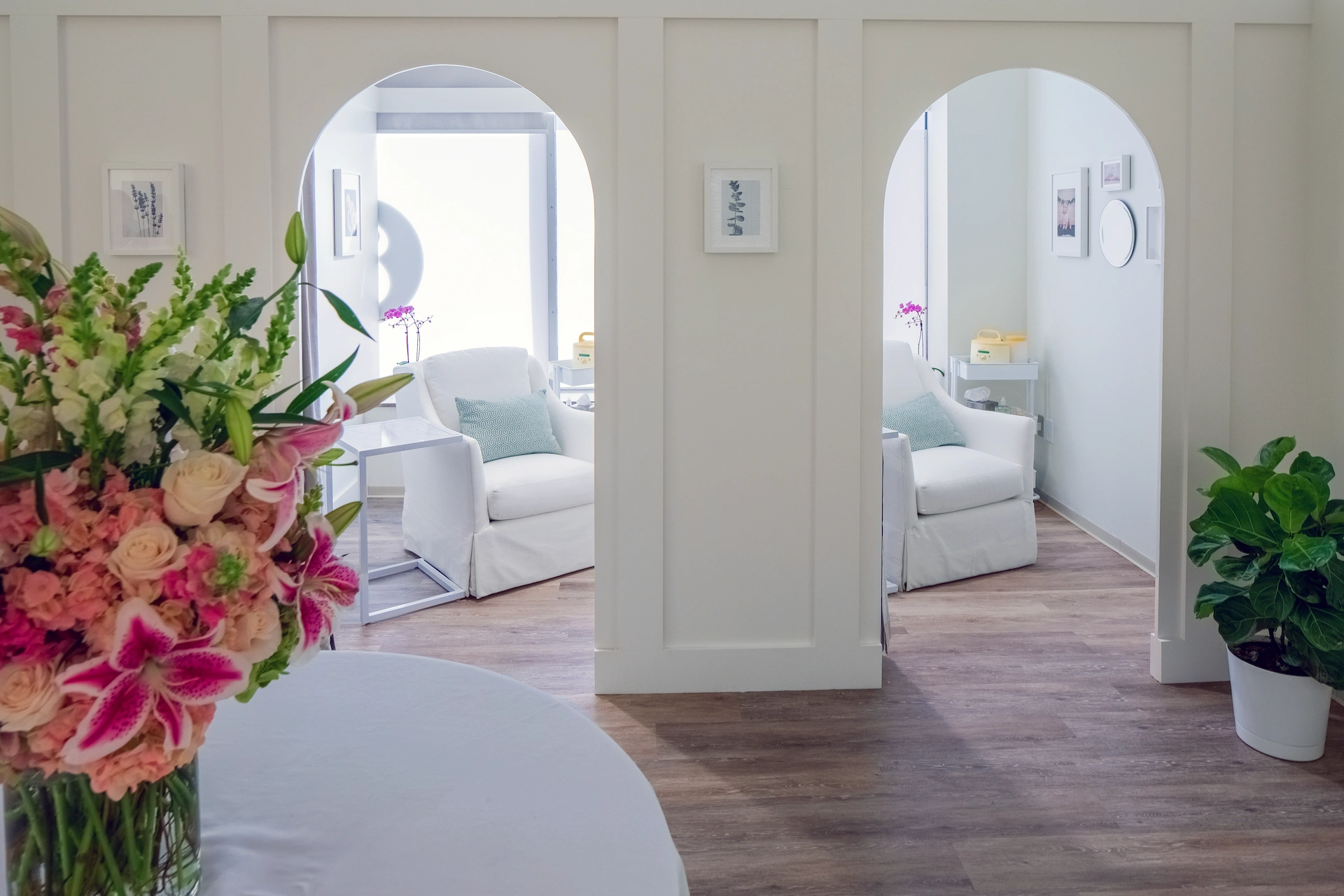We are thrilled to announce our investment in Work & Mother, a full-service mother’s room amenity and companion application for commercial office buildings. Founder & CEO Abbey Donnell launched Work & Mother in Houston, TX, in 2019, just as commercial real estate (and the world) unknowingly stood on the precipice of the unthinkable. Through Abbey and her team’s fortitude and resourcefulness, Work & Mother grew despite the uncertainty. And last week, on International Women’s Day, we celebrated the launch of our flagship New York market location in partnership with TIAA/Nuveen. There is a lot more to share about Abbey, her team, and this much-needed product, but before we get there, let me start with our investment rationale.
At Building Ventures, we often talk about our mission to invest for a better built world. With this mandate, we search for solutions to the ways our built environment continues to fall short for people or our planet. Sustainability is a pillar of our investment thesis, and, as a firm, we have invested numerous times over in founding teams working to decarbonize the built environment. The environmental impact of buildings—which we refer to as the 40% problem—is a massive issue. But it isn’t our only opportunity for sustainable improvement. Building Ventures is equally committed to finding solutions that address the societal and social implications of our buildings that perpetuate inequality, poor health, and lack of well-being, just to name a few.
The COVID-19 pandemic brought about a seismic shift in how many people understood and appreciated the role of our built environment. Suddenly, we recognized the ways in which our buildings made us feel safe and supported or not, a lesson that has not been forgotten four years later, particularly in the workplace. Commercial office buildings were already facing an inflection point prior to the pandemic. Dror Poleg predicted tenants’ flight to quality and the need for a paradigm shift to customer centricity in Rethinking Real Estate in 2019, well before we could have imagined the events of the subsequent years. But we now know that the pandemic years accelerated and amplified these shifts in how we work, where we work, and what we expect from our workplaces. Namely, office workers demand greater flexibility, safety, health, and wellbeing.
The key stakeholders of commercial office are at an intersection of many needs. However, when we take a closer look, all of these needs are actually in alignment. Owner/landlords need to attract and retain the best tenants, and they need to effectively activate and monetize their space. Employer/tenants need to attract and retain the best employees by creating desirable workplaces with features and benefits that meet top talent demands. Employees want a workplace that supports their productivity, career goals, and work/life balance, as well as their health and well-being.
As many organizations are developing and enforcing their return to office (RTO) plans, the question becomes this: How can landlord and tenant work together better in the aligned mission to bring the individual back to physical work, while meeting their many demands? Amenities, of course. Gyms, dry cleaners, dog parks, coffee shops, food courts—surely these resources would meet employee needs and desires. And yet one key group of employees is consistently forgotten when it comes to creating safe, healthy, and supportive spaces that entice employees back into the office: nursing mothers.
The Brookings Institute found that, since February 2023, women between the ages of 25 and 54 had a labor force participation rate of 77.8%, a new high thanks to the flexibility of remote work. This flexibility proved even more impactful for the subset of these women who are parents as well. According to Brookings, “more mothers of young children between the ages of zero and four are working now than ever before, with an all-time labor participation rate exceeding 70%.”
Take in those numbers: The sheer power and importance this group should wield collectively in the workforce! And yet the state of the art for nursing mothers returning to work has remained a cramped privacy pod, converted closet or shared “wellness space.” But we all know that oftentimes conditions are much worse than that. Without dedicated, purpose designed and built spaces, women are subjected to logistical struggles spanning booking oversight to an inability to clean their pump parts and store their milk, as well as at best a lack of privacy and at worst instances of harassment.
The status quo has held for years. So, why now in 2024, five years after founding Work & Mother, are Abbey and her team experiencing strong market demand and implementing lactation suites and The Hub companion app nationwide with the top owner groups in commercial real estate? A confluence of factors.
Let’s start with the regulation. All employers with greater than 50 employees need to comply with numerous local and federal legislations, most notably December 2023’s PUMP Act. Owners realized that with Work & Mother, they could provide a truly impactful, building-wide amenity that would help their tenants fulfill a legal requirement and score them ESG points for their own Fitwel/WELL certifications.
Second, owners have seen meaningful impact in leasing their spaces when a Work & Mother suite is a listed amenity. Brokers report it to be a differentiator at lease up of new construction and in retrofits, and it is an amenity that can make great use of otherwise underutilized or unmonetized square footage. Abbey and her team designed the product to be flexible without compromising the spa-like aesthetics that users adore.
Third, just because women have returned to the workforce en masse does not mean they will remain passively content in their current situations if underappreciated. Rigid RTO policies threaten to roll back the progress spelled out in The Brookings Institute report. In fact, a lack of flexibility by some employers is already pushing mothers out of their jobs, and 72% of women say they’ll leave their job if their employer eliminates its flexible hybrid policy, according to Brookings. This is something workplaces need to contend with as they chart their future, and keeping a keen eye to how we value women’s user experience within the four walls of the office is of equal importance to how we enable working caregivers outside the workplace.
Lucky for owners, employers, and current (and future!) employee/caregivers, the current W&M products and future brand extensions address the needs of all 3 stakeholders. Abbey, now a startup CEO and mother of two, founded the company before she became a mom. As Abbey tells it, “I was hearing all of these horror stories from friends about trying to continue breastfeeding after returning to work. These are people at companies that should’ve had the spaces and resources for it. And I looked around my own office, and it was an open floor plan, glass walls, and a single unisex bathroom. Even though my company was super supportive—has a very supportive culture—there’s just no way I would be able to do this. And, so, I basically set out to create a solution that I knew needed to exist. In fact, I was pregnant with my first when I launched the pilot. Then, I got to test everything in real time.”

Work & Mother lactation suites have everything needed for pumping during the workday, including private rooms, hospital-grade pumps, cleaning necessities, refrigeration, storage, as well as a private booking system.
Aside from the both beautiful and practical design, the novelty of the business model is that Work & Mother operates much like a building gym. Rather than every tenant trying to create individual solutions to support working mothers, they can simply access their building’s Work & Mother suite and enjoy the benefits. The suites have everything a woman needs to pump during the workday, including private rooms, hospital-grade pumps, cleaning necessities, refrigeration, storage, a private booking system, additional support resources, and peace of mind.
I was first introduced to Abbey by her pre-seed investors, Stephanie and Diana at The Artemis Fund. We were catching up at an All Raise event, an organization dedicated to supporting female and non-binary funders and founders, refreshing each other on our investment theses when we realized that W&M is equal parts proptech, femtech, and future of work. I was on the plane to Houston to meet Abbey and the team and tour the suites in the beachhead market in a matter of weeks.
Building Ventures is thrilled to lead the $3.5M Series Seed joined by new investors Claritas Capital, Second Century Ventures, Alumni Ventures, and returning investor The Artemis Fund. I have joined the board, and we look forward to working with Abbey and the team as they use these funds to scale nationwide, beginning with this incredible launch into the NYC market on International Women’s Day. #forabetterbuiltworld.
Learn more about Work & Mother here.


